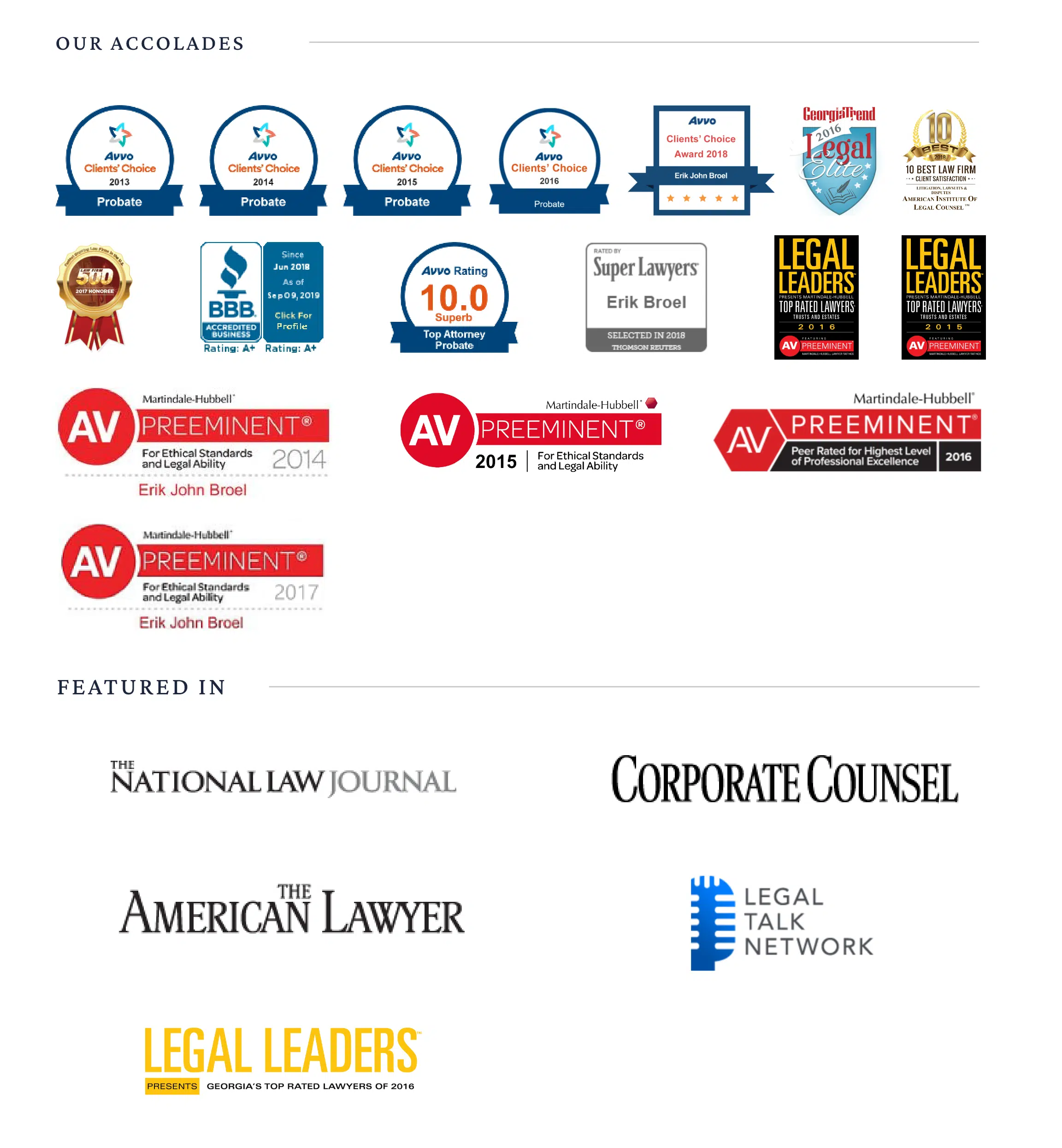
Estate refers to the deceased person’s property, money, belongings, and other possessions.
During this conversation, you might work through other queries like:
This article will attempt to simplify this topic, clarify, and answer some of the most pressing questions you likely have about estate administrators and the estate administration process.
So, let’s begin.
An Administrator of Estate is a person appointed by the Probate Court to manage the estate when the loved one who died did not leave a Testament and Last Will.
Considering that there is no Will to indicate who should manage the estate, the Administrator of the Estate is designated by the heirs of the deceased and confirmed by the Probate Court.
To avoid possible conflicts after the death of a loved one, one person needs to be officially in charge of handling the estate of the decedent.
Starting a probate proceeding can facilitate this process. Once the decision has been made to begin probate, it can take 3-6 months to officially open the estate, depending on the county.
During this time, the individual named on the will — an Executor — will be authorized to administer the estate and determine how assets will be distributed.
But if a person dies without a will (what we call intestacy) or the executor declines their duties, no one will be authorized to manage the deceased’s affairs. In this case, the Probate Court will appoint someone to handle the decedent’s estate, and this is the Administrator of estate.
You need an official document called a Letter of Administration to prove that you are the estate’s Administrator.
When there is no will, a court order will be issued, officially appointing someone to represent the estate, and it is called a Letter of Administration. This document gives the nominated Administrator the authority to collect assets, work with creditors, and act on behalf of the deceased person’s estate.
Without this document, no one has any power to take action on behalf of the estate whatsoever. Financial institutions will not be able to speak with you, and you may not have the authority to transfer or sell property, including the estate home.
To obtain the Letters of Administration, first, you must ensure that the deceased did NOT leave a will. Then, you must file an appropriate petition in the Probate Court to begin the process.
It depends on the county, but when there are no disputes and all initial paperwork is filed correctly, you may receive the documentation within 3-6 months of filing.
If the deceased did leave a will, you would receive a different order called Letters of Testamentary. Letters of Testamentary will allow you to act on behalf of the decedent and manage tax-related matters.
Executors and administrators share the same responsibilities, but these two roles are assigned differently.
An Executor is someone the deceased named on the will to handle their estate affairs. The named executor will be required to manage the estate, pay debts, and distribute the estate’s remaining assets to beneficiaries.
An Administrator, on the other hand, is someone that the Probate Court appoints if one of the following is true:
Temporary administrators have minimal abilities but are often quickly assigned because of emergencies (e.g., imminent property foreclosure).
Although, in certain situations, it may be beneficial to file to become a temporary administrator, there are a few drawbacks:
When a Permanent Administrator is officially appointed, they will have certain powers and greater flexibility in administering the estate.

If there is no will to identify the assets of the estate, the Administrator may have to comb through the personal files and financial records of the deceased to gather all the necessary information.
Any individual who would like to petition to become the Administrator may do so, but the most common choices are typically a surviving spouse or a next of kin.
The scope of an estate administrator’s authority is vast. They can determine how to settle the decedent’s estate and how the assets of the estate should be distributed. For example, they may choose which assets to sell and which to hold for later distribution to the heirs.
Can an administrator of an estate take everything?
No, an administrator of the estate can act only within the limits established by the Letters of Administration.
Can an administrator of an estate sell property?
Yes, an administrator of the estate can sell the property and distribute it to the heirs.
Who is not qualified to become an administrator?
Candidates below the age of 18, corporations, and persons with a questionable background (e.g., criminal record) are generally not eligible. Ultimately, the Probate Court decides who will be appointed for this position within its discretion.
How is an Administrator of Estate selected when there is no will?
If all heirs make a unanimous selection, the Court will often nominate that person as the Administrator. Otherwise, it will appoint the person it considers best to serve the estate’s interest.
Yes, an administrator may be selected among beneficiaries.
States base their selection on various criteria, but the Court generally uses this priority list as guidance:
Remember that the Probate Judge is not required to follow this list and has a wide range of discretion to appoint the person they feel is best for the estate.
Yes. Although the spouse or a family member is often chosen as Administrator, other people can apply as long as all heirs approve.
If the heirs cannot make a unanimous selection, the Court may decide to appoint an Administrator of the Court’s choosing. It may also consider appointing a County Administrator.
Other entities like guardianship agencies (if the deceased was incapacitated) and creditors may also be considered.
What if I’m Opposed to the Nominated Administrator?
If you have any reservations about the person petitioning for the role, you may want to consider filing a legal objection. Beyond this period, the Court may authorize them to administer the estate.
Filing an objection requires a legal basis, and there are many different options to consider for the legal objection. It is best to speak with your attorney on what objection may be best for your situation.
If you claim that someone is unfit, you will be required to submit evidence to support it. If priority is the basis of your objection, that means someone else ranks higher on the priority list under Georgia Law and should be considered first for this position.
Once an administrator is appointed, they will be compensated based on the quality of their work, and the amount they receive will depend on the state and the size of the estate.
To receive compensation, they must fully account for their expenses and time spent doing the work.
Estate administrators are accountable for the following involved parties:
Administrators must satisfy the estate’s creditors before distributing assets to the beneficiaries or anyone entitled to the estate. In Georgia, a priority system dictates which creditor should get paid first, and the Administrator must follow it in the correct order.
If the Administrator fails to pay the deceased’s creditors or follows the list in the wrong order, they will be personally responsible for satisfying the creditor.
Keeping an accounting of estate assets and liabilities is one of the responsibilities of an estate administrator.
If an heir or beneficiary feels the appointed Administrator is not being transparent, they may file with the Probate Court to request a detailed accounting from the Administrator.
If the Administrator mismanages the assets of the estate, the beneficiaries may petition to have them removed from their position or personally reimburse the estate.
The will should determine the beneficiaries entitled to the assets of the estate, but if there isn’t one, the state’s intestacy laws will apply.
The estate administrator will take an oath once they are appointed to their position.
The Court may request them to file paperwork, such as an inventory or accounting, to show the estate’s progress. If the Administrator fails to comply, the Probate Judge may request a hearing or even remove them for failing to provide the necessary information.
The estate administration process and appointing an administrator of the estate can be very tedious, especially if you need clarification on what questions to ask and in what order.
If you need clarification from a probate lawyer, we invite you to download a copy of our Georgia Probate Handbook to find out all the details. If you need further help, contact our office at (770) 796-4582 or arrange a probate consultation.
Disclaimer: The information above is provided for general information only and should not be considered legal advice. Our probate attorneys provide legal advice to our clients after talking about the specific circumstances of the client’s situation. Our law firm cannot give you legal advice unless we understand your situation by talking with you. Please contact our law office to receive specific information about your situation.
Compassionate listeners, knowledgeable guidance. Schedule a free consultation with our team and let us help you and your family with your legal concerns.
GET IN TOUCH 770-796-4685Learn Important Probate Essentials, including key things that go wrong in an estate, how to prevent them, and what to do if they happen.



© 2024 Georgia Probate Law Group by Broel Law, LLC. All rights reserved.